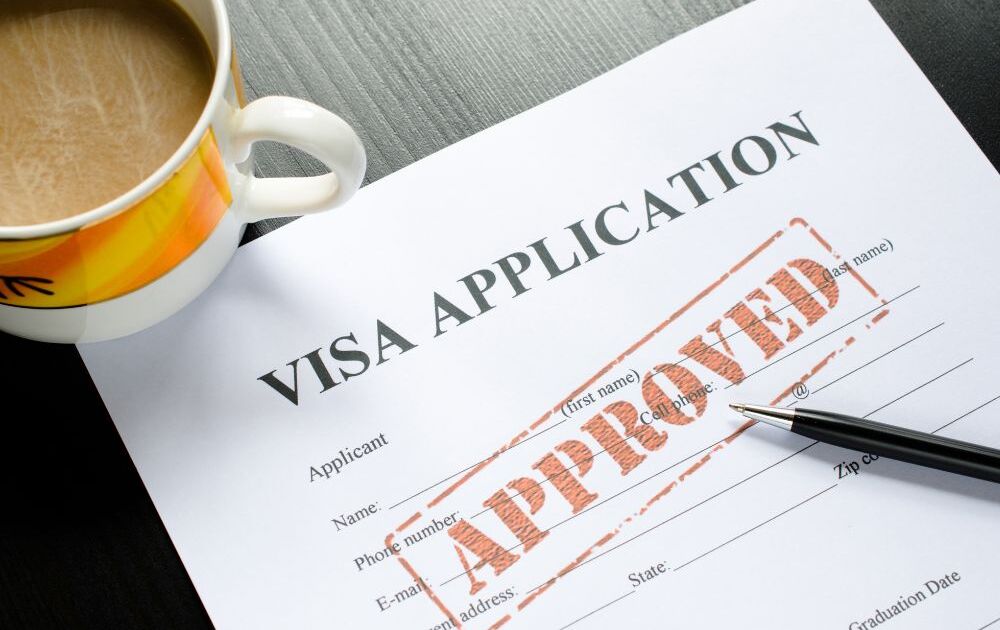Procedures & Counseling
July 1, 2025Documents required for a student visa

If you’ve already decided to study in Japan with a student visa, it means you’ll be studying for six months or more. It’s important to be clear about what you need to prepare in terms of paperwork and documentation for the school admissions process, the visa application, and any other important information.
First, it’s important to clarify why you shouldn’t apply to a school immediately, as some students are waiting for the right time to even gather the documents they’ll need.
- Some documents have expiration dates, for example, bank documents, which are only valid for three months after they are issued by the financial institution.
- Schools accept applications during specific periods; enrollments are not always processed for all admission periods; each application period has a start and due date and time.
- Although the documents may be clear, it is important to wait for personalized instructions, as each situation may vary and not all applicants submit the same documents.
With this in mind, consider this blog as a guide, as it begins with the basic and additional documents, with the latter varying according to the individual’s conditions.
Why can’t I start my process as soon as I decide?

The number of students applying to a school can be very large, and there are four opportunities per year for new students to begin their journey. Keep in mind that some schools limit their application periods to two per year, either because they want to limit the flow of students or because their capacity doesn’t allow it.
Imagine that 100 students apply each application period, and the school team is usually a small group of people (sometimes two people) who must carefully review every document, every word of each student, to verify whether or not they are a potential candidate, in order to accept them and begin the process with immigration and the future application to the COE (explained later). This is the case for a one-period application; now imagine if they accepted every student who will join in any of the four periods of the year, and for each year to come… It would be an impossible mission.
Processing only current applications is a sure way to give each student the necessary attention. Agencies like KOKO JAPAN are a group of people who support schools with this process, as the admissions teams in charge are so small that without our help, it would be very difficult to complete applications on time, successfully and efficiently.
Visa and COE
Understanding these terms can be crucial, as unlike other countries, in Japan the difference is huge. You can speak with your knowledgeable advisor and even explain it to those around you when they ask you about your Japanese visa process. Aside from everything else, you’ll hear the word COE many times while you’re in Japan, because your colleagues, friends, or acquaintances will also be waiting for the famous COE.
The COE can be called as it sounds or spelled in English, and it stands for Certificate of Eligibility. To make it simple, it’s a document that certifies that someone is eligible to live in Japan. All potential foreign residents who will come to Japan to study, work, or marry nationals apply for it. As you can imagine, this document is issued after immigration receives all your application documents, reviews them thoroughly, decides whether “this person meets the requirements to live in Japan” or “this person doesn’t seem to meet the requirements,” and issues the result. Without wanting to flex too much, our students have always received an “acceptance” and this is the great benefit of doing your process with an agency like ours, double filtering of possible errors and more preparation.
After obtaining the COE, the student goes to the nearest Japanese embassy in their country. Upon submitting it, the embassy will issue your visa in your passport. It sounds very simple, but it can be more complex or time-consuming, taking a few days and requiring an appointment. However, this varies by embassy. This “visa” is more of an “entry permit.” It will specify the duration of your student visa, as well as an issue date and an expiration date, which are usually two or three months after issuance. This means you can enter Japan within those two dates. In other countries, the visa expiration is the time you can renew it and/or leave the country. In Japan, the term that best explains it might be “entry permit,” since you cannot re-enter the country with the entry permit stamped in your passport because it will have expired (re-entry is not possible with the passport stamp).
So, that so-called “visa” will be your entry permit, and upon arriving in Japan, you must go to the city office closest to where you will live and register, ask for your Zairyu Card which is your residence card, and with this you can leave and enter Japan as many times as you want, along with your passport, of course.
Let’s dig in…
With the clear differences in mind, the documents we’ll present below are those required for the COE application, which is the most important document: the residence permit. Being a resident in Japan has its responsibilities, but also incredible benefits. The most notable is social security, which is wonderful for its cost-benefit ratio, covering 70% of medical expenses, especially when you’re a student.
Important note: Having your COE application denied can have a negative impact on your record in Japan. So, as a tip, be sure to follow your advisor’s guidelines carefully and avoid, under all circumstances, omitting information or providing incorrect information.

Basic Documentation
Passport: You must have a valid passport that isn’t about to expire. No travel experience is required. Don’t worry if this is your first time leaving the country; this won’t affect your travel experience at all.
Photograph: A photo of yourself with a white background, face uncovered, with no shadows or highlights. If you can take a studio-style photo with a good phone, no problem. Imagine it’s a passport photo; it should be that clean.
150 hours of Japanese study or JLPT N5: More and more schools are asking their applicants to study Japanese before coming to Japan. This will provide a solid foundation for a smooth transition to Japan, less impact from changing your environment completely and building a connection with the language. It will strengthen your immigration profile by demonstrating that you are a genuine student. If necessary, taking a course is recommended, although some schools accept self-study.
Diploma of the last degree: This must include your name, the name of the institution, and the graduation date. It can be from a high school, a college, or a university, whichever applies to you.

Annual income: Your financial guarantor (either yourself or a qualifying family member) must demonstrate an annual income of between 1,200,000 yen and 3,000,000 yen, either through a tax return, 12 payslips, or a letter from your employer stating your monthly/annual salary.

Savings: Your financial guarantor must demonstrate savings of between 1,200,000 yen and 3,000,000 yen through a bank statement.
Additional Documents

These may be optional and are not required in all cases.
Birth certificate: When the financial guarantor is a relative, proof of the relationship with them is required through birth certificates.
Entry and exit records: If you have previously traveled to Japan, your entry and exit history will be required. Make sure you have a good history.
Employment certificate: The financial guarantor, who must also demonstrate financial solvency, must prove their employment through this certificate.
Health certificate: If you have a chronic illness or physical/mental disability, this certificate must be presented, stating that the person will have no difficulties traveling and living abroad.
In conclusion
You may be just starting your process, or you may have it on hold if it’s still a long way off, but it’s good to start familiarizing yourself with the terms and understanding how the study world works in Japan. Having gaps in this regard can make you desperate and feel like you’re wasting your time. But remember, we’re talking about a country where everything is carefully planned to make the most of all resources, and immigration is no exception. Knowing the documents you’ll need and those you’ll likely need to submit will ensure nothing takes you by surprise, and you can prepare yourself with some of them, or emotionally if it’s a topic that overwhelms you.



